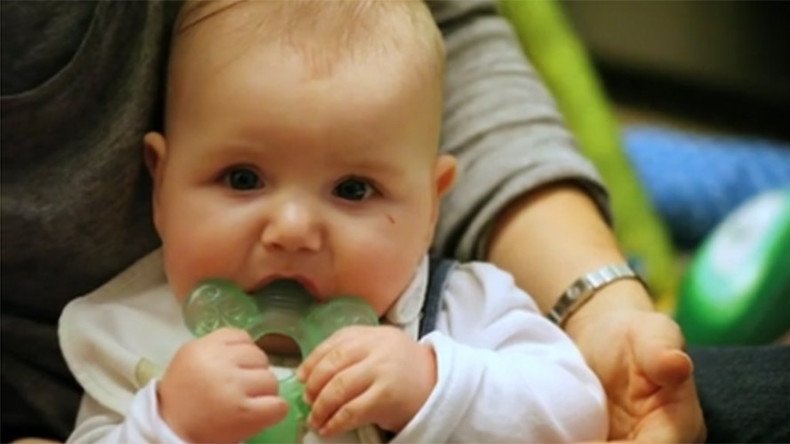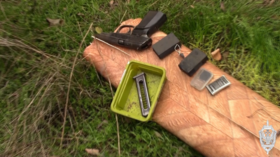‘Unnecessary risk’: FDA says homeopathic teething product is toxic, company won’t recall

After the FDA issued a warning about a homeopathic medication for teething infants, the manufacturer refused to recall the product, saying that they are confident that the product is safe.
The Food and Drug Administration (FDA) said on Friday that the levels of belladonna, a toxic substance also known as deadly nightshade, found in the teething tablets were sometimes “far exceeding the amount claimed on the label.”
The FDA is recommending that parents not use Hyland’s homeopathic teething tablets, and immediately dispose of any remaining products they possess.
#FDA confirms St. Jude heart monitors can be hacked, #AbbottLabs to release patch https://t.co/VYMiJYzMQOpic.twitter.com/UNVusPCqLb
— RT America (@RT_America) January 10, 2017
“The body’s response to belladonna in children under two years of age is unpredictable and puts them at unnecessary risk,” Janet Woodcock, director of the FDA’s Center for Drug Evaluation and Research, said in the statement.
Due to the fact that the tablets are labeled as homeopathic and do not have a warning label, most parents think that they are a safe way to treat teething pain. However, Lyndsay Meyer, a spokeswoman for the FDA, says that there have been many reports of severe effects associated with the drug.
“Most describe serious adverse events, like seizures,” Meyer said according to CNN. “We are also aware of reports of 10 deaths during that time period that reference homeopathic teething products.”
These deaths have not been confirmed to be linked to the teething products, and the case is currently “under review,” according to Meyer.
In 2015, Madison Tapler was using Hyland’s Baby Nighttime Teething Tablets to treat her baby daughter’s pain. Soon, she noticed her daughter was having non-epileptic seizures that she couldn’t explain.
“She had been having about five or six episodes per day,” Tapler said, according to WCNC News. “Each one lasting three to five minutes. It was scary.”
After going to the doctor, and trying everything they recommended, Tapler stopped treating her daughter with the teething tablets and noticed a huge difference.
“She had less of the non-epileptic seizures each day until she stopped having them,” Tapler said. “She is to the point now where she is completely fine.”
The FDA originally issued a warning for Hyland’s Teething Tablets back in 2010, listing the side-effects as “seizures, difficulty breathing, lethargy, excessive sleepiness, muscle weakness, skin flushing, constipation, difficulty urinating, or agitation after using Hyland’s Teething Tablets.”
belladonna.http://www.fda.gov/NewsEvents/Newsroom/PressAnnouncements/ucm230761.htm
The FDA recommends that consumers stop using these products marketed by Hyland’s immediately and dispose of any in their possession.
Despite these warnings, Standard Homeopathic Company, the manufacturers of Hyland’s homeopathic teething products, have not agreed to conduct a recall.
“Our understanding is that the Food and Drug Administration’s investigation of these products is still ongoing,” the company said in a press release. “The fact is that we have not been made aware of any medical or statistical evidence to support a causal link between homeopathic teething tablets and adverse outcomes at this point. We continue to request any available information and statistics from the FDA.”
The FDA claims that they have not approved or evaluated any homeopathic teething products for safety or effectiveness, but they also claim they are not aware of any health benefits from the products.











